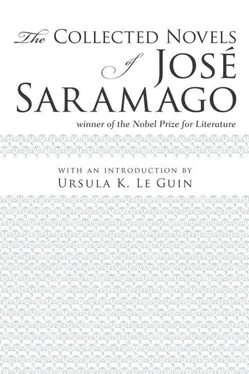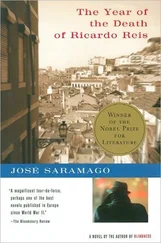This coming and going from palace to Temple and from Temple to palace went on for almost an hour. Read, ordered Herod when the priest entered the king’s bedchamber, and the priest began, The word of the Lord as spoken to Micah of Maresheth in the days of Jotham, Ahaz, and Hezekiah, kings of Judah. He continued reading until Herod told him, Read further on, and the priest, puzzled and uncertain as to why he had been summoned, jumped to another passage, Woe to those who plot evil and lay plans for wicked deeds as they he abed, but here he stopped, horrified at this involuntary impudence, became tongue-tied, and, hoping Herod might forget what had just been said, he went on, In the end it will come to pass that the Lord’s great mansion will rise above the hills. Further on, snarled Herod, impatient to get to the passage that interested him, and the priest finally came to it, But it is from you, Bethlehem, so insignificant among the families of Judah, that the future ruler of Israel will come. Herod raised his hand, Repeat that passage, he insisted, and the priest obeyed. Once more, he ordered him, and the priest read it a third time. That’s enough, said the king after a prolonged silence, You may withdraw. All was now clear. The book announced a future birth, nothing else, while the ghost of Micah had come to warn him that this birth had already taken place. Your words, like those of all prophets, could not have been clearer, even when we interpret them badly. Herod thought and thought again, his expression more and more grim and menacing. He then summoned the commander of the guards and gave him an order to be carried out forthwith. When the commander returned to report, Mission fulfilled, Herod gave another command to be carried out at daybreak, now only hours away. So we shall soon know what has been ordered, unlike the priest, who was brutally assassinated by soldiers before he reached the Temple. There is reason to believe that this was the first of the two orders, so close are the likely cause and the logical effect. As for the Book of Micah, it disappeared, and imagine what a loss that would have been had there been only one copy.
A CARPENTER AMONG CARPENTERS, JOSEPH HAD FINISHED eating his lunch, and he and his companions still had some free time before the overseer gave the signal to get back to work. Joseph could sit for a while, stretch out and take a nap or indulge in pleasant thoughts, imagine himself on the open road, wandering the countryside amid the hills of Samaria or, better still, looking down from a great height on the village of Nazareth, which he sorely missed. His soul rejoiced as he told himself that this long separation would soon be over and he would be on his way with only the morning star in the sky, singing praises to the Lord who protects our homes and guides our footsteps. Startled, he opened his eyes, afraid that he had dozed off and missed the overseer’s signal, but he had only been daydreaming, his companions were still there, some chatting, others taking a nap, and the jovial mood of the overseer suggested that he might give his workers the rest of the day off. The sun is overhead, sharp gusts of wind drive the smoke from the sacrificial fires in the opposite direction. In this ravine, which looks onto the site where a hippodrome is under construction, not even the gabbling of the vendors in the Temple can be heard. The machine of time appears to have come to a halt, as if it too were awaiting a signal from the mighty overseer of universal space and time. Joseph suddenly became uneasy, after feeling so happy only a moment ago. He looked around him and saw the same familiar building site, to which he had grown accustomed in recent weeks, slabs of stone and wooden planks, a thick layer of white dust everywhere, and sawdust that never seemed to dry. He tried to find some explanation for this unexpected gloom, it was probably the natural reaction of a man who had to leave his work unfinished, even if this particular job was not his responsibility and he had every reason for leaving. Rising to his feet, Joseph tried to calculate how much time was left. The overseer did not even turn to glance in his direction, so Joseph decided to take one last look at the section of the building on which he had worked, to bid farewell, as it were, to the timbers he had planed and the joists he had fitted, if they could possibly be identified, for where is the bee that can claim, This honey was made by me.
After taking a good look around, Joseph was heading back to the site when he paused for a moment to admire the city on the opposite slope, built up in stages, with stones baked to the color of bread. The overseer must have given the signal by now, but Joseph was in no hurry, he gazed at the city, waiting for who knows what. The minutes passed and nothing happened. Joseph muttered to himself, Well, I might as well get back to work, when he heard voices on the path below the spot where he was standing, and, leaning over the stone wall, he saw three soldiers. They must have been walking along the path and decided to stop for a break, two of them were resting on their lances and listening to the third man, who looked older and was probably their officer, although it was not easy to tell the difference unless you were familiar with the various uniforms and knew the significance of the many insignia, stripes, and braids denoting rank. The words, which Joseph could barely make out, sounded like a question, something like, And when will that be, and one of the younger men answered in a clear voice, At the beginning of the third hour, when everyone is indoors. Whereupon the other soldier asked, How many of us are being dispatched, only to be told, I don’t know yet but enough men to surround the village. Has an order been given to kill all of them. No, not all of them, only those under the age of three. It’s difficult to tell a two-year-old from a four-year-old. And how many will that make, the second soldier wanted to know. According to the census, the officer told them, there must be around twenty-five. Joseph’s eyes widened as if they could grasp this conversation better than his ears could, and he trembled from head to foot, because it was clear that these soldiers were talking about killing people. People, what people, he asked himself, bewildered and distressed, No, no, not people, or rather, people, but children. Children under the age of three, the officer in charge said, or perhaps it was one of the junior soldiers, but where, where could this be. Joseph could not very well lean over the wall and ask, Is there a war going on. He felt his legs shaking. He could hear one of the men say gravely, though with relief, How fortunate for us and our children that we don’t live in Bethlehem. Does anyone know why they’ve chosen to kill the children of Bethlehem, one of the soldiers asked. No, the commander didn’t say and I’ll wager he doesn’t know himself, the order came from the king, and that’s all we need to know. Tracing a line on the ground with his lance, as if dividing and parceling out destiny, the other soldier said, Wretched are we who not only practice the evil that is ours by nature but must also serve as an instrument of evil for those who abuse their power. But these words went unheard by Joseph, who had stolen away from his vantage point, cautiously at first and then in a mad rush, like a frightened goat, scattering pebbles in all directions as he ran. Unfortunately, without Joseph’s testimony we have reason to doubt the authenticity of this soldier’s philosophical remark, both in form and content, given the obvious contradiction between the aptness of the sentiment and the humble station of the person who expressed it.
Delirious, bumping into everything, overturning fruit stalls and bird cages, even a money changer’s table, and oblivious to the cries of fury from the vendors in the Temple, Joseph is concerned only that his child’s life is in danger. He cannot imagine why anyone would want to do such a thing, he is desperate, he chose to father a child and now someone wants to take it from him, one desire is as valid as another, to do and undo, to tie and untie, to create and destroy. Suddenly he stops, realizing the risk he is running if he continues in this reckless flight, the Temple guards might appear and arrest him, he is surprised they have not already been alerted by the uproar. Dissembling as best he can, like a louse taking refuge in the seams of a garment, he disappears into the crowd and instantly becomes anonymous, the only difference being that he walks a little faster than others, but this is hardly noticed amid the labyrinth of people. He knows he must not run until he reaches the city gate, but he is distressed at the thought that the soldiers may already be on their way, ominously armed with lance, dagger, and unprovoked hatred. If they are traveling on horseback, he will never catch up with them, and by the time he gets there, his son will be dead, poor child, sweet little Jesus. At this moment of deepest anguish a foolish thought occurs to him, he remembers his wages, the week’s wages he stands to lose, and such is the power of these vile material things that, without exactly coming to a halt, he slows down just long enough to ponder whether he can rescue both his money and his child’s life. Quick as it surfaced, this unworthy thought disappears, leaving no sense of shame, that feeling which often, but not often enough, proves our most reliable guardian angel.
Читать дальше












